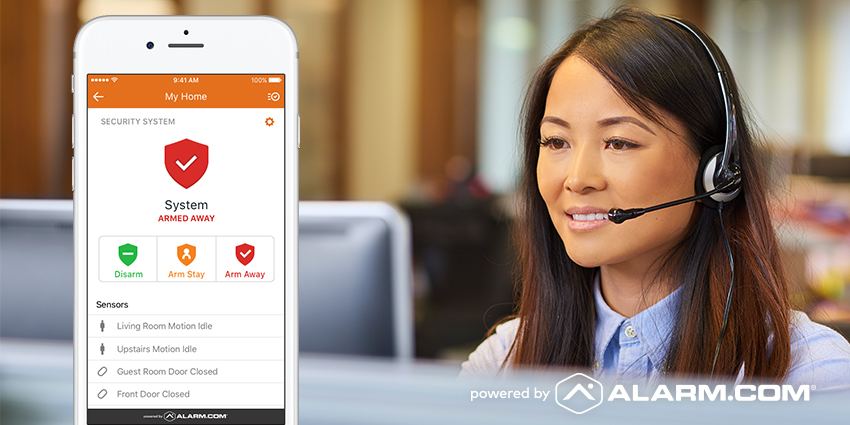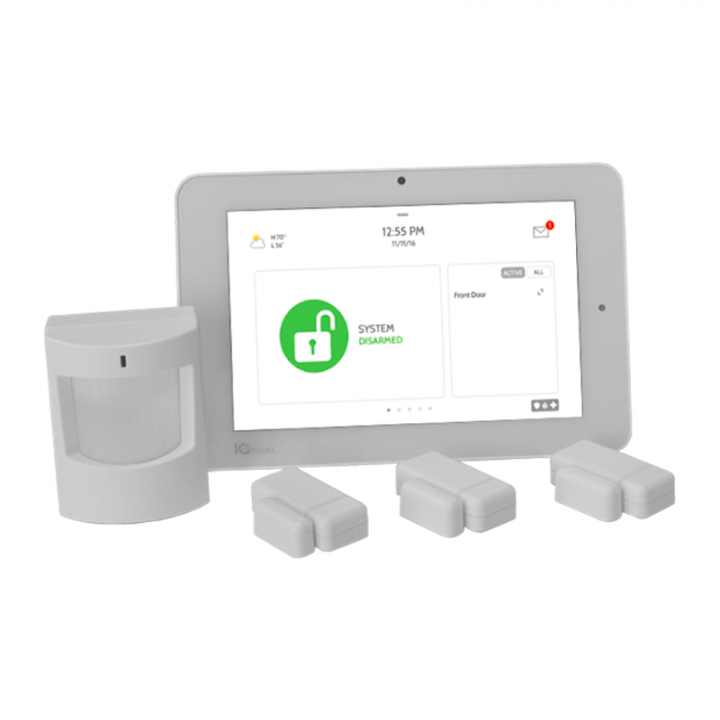Do-it-Yourself, (or “DIY”) security has gained traction in the last several years. Some security companies, in fact, have popped up that only offer DIY security services. While we offer both options, we also take care to let customers know what to expect following either path. Whether or not one option is “better” than the other often depends on your own areas of expertise. Our customers who go this route need to feel comfortable with each stage of the design and installation process. System design, installation, and maintenance and all fall on the customer in this case. If this thought makes you cringe, you can probably rule out the DIY option now. However, if it intrigues you, keep reading to see how these two approaches differ and what to expect with each.

DIY security generally cost less up front than professionally installed security. However, you should make sure to take potential future repair costs into account if you plan on installing your own security system.
System Design and Up-Front Cost
DIY security requires completing quite a bit of groundwork before purchasing and installing any equipment. In our post on Smart Security System Design, we detailed some of that process. However, most of these choices revolve around answering logistical questions. You will certainly need to design a practical system that suits your needs. You should also consider researching how burglars usually approach their craft. We have the knowledge to view your home as a thief would and address your security coverage accordingly. Without that knowledge, your alarm will not provide the proper amount of security.
As you could expect, a self-installed system will predictably cost less than a professionally installed alarm. When most people consider DIY security, they generally do so hoping for a financial benefit to this approach. With a professionally installed security system, the installation makes up a large part of that cost. Cutting this cost out can lower the overall price of the system. Let’s take a closer look at what happens when you install and maintain your own security system, versus your options with a professionally installed alarm.
System Installation and Maintenance
So what do you actually pay for when you hire a security company to install your alarm? Having your system monitored by licensed technicians has a few benefits. For starters, we offer a warranty on your security system above and beyond the manufacturer’s warranty. This ensures that your system continues working well after the installation. We also offer extended warranties that many of our customer take advantage of. If you buy and install your own parts, you must also factor in the potential for repairs down the road. When you have a system professionally installed, an extended warranty can ensure that you do not have to spend any more money on parts or repairs.
Finally, our business’s security license allows us to legally install and monitor security systems in any setting. If you choose the wrong equipment, it may cost you down the road. For example, many people install fire panels that are not UL-listed fire panels in commercial settings. In the case of an actual fire, an insurance company will not pay that company’s claim. Hiring a licensed security company to design and install your system can help you avoid these dangers.
We will make sure that your equipment fits your needs and that it meets all local and national standards. We will also pull all the permits necessary to do the work legally and ensure that it will pass an inspection. Failing to take this step has caused DIY’ers issues at times. A poorly installed security system can put your home at risk. It can also lead to a failed inspection if you go to sell your home.

Monitoring your security system through an interactive cellular service such as Alarm.com gives you control over your system at all times. In addition, we also recommend having your system professionally monitored to ensure that someone is ready to dispatch the police, fire department, or an ambulance at all times.
Who Will Monitor My Security System (and How)?
In our post answering the query “Should I Have My Security System Monitored?,” we discussed the importance of professionally monitoring your security system. Many “Do-it-Yourself’ers” opt instead to monitor their own systems. By installing an interactive cell dialer, they can receive alerts on their phone when the system is activated. From there, homeowners can attempt to figure out what went wrong and call the proper authorities.
Some DIY’ers also choose to have a system that sounds a siren without sending any additional signals. Of course, self-monitored and unmonitored systems are still both better than having no system at all. Regardless of who installs your system, however, you can still have your system monitored professionally.
In addition to professionally monitoring your security system, we also recommend using a cellular dialer. An interactive dialer, such as ours powered by Alarm.com, offers the most security. This dialer allows you to turn your security system on and off remotely using a smartphone, computer, or tablet. It also sends you alerts to keep you up to date on your alarm’s status, as we mentioned above. You’ll want to know when your alarm activates, but you may also want to know about low system batteries, power failure, or similar events. In addition, your cell dialer will connect your alarm to the central station through a secure cellular network. If your alarm goes off when you don’t have access to your phone, help will still be on the way. The convenience and reliability of a cellular dialer, combined with the security of a professional monitoring service, make this the best option.

When customers opt for DIY security, they usually install a wireless system. The QOLSYS IQ Panel 2, for instance, allows users to install the system with minimal wire running and hassle.
What Type of System Should I Buy?
When we install a security system, we can offer several options. Our post on Smart Security System Design runs through the pros and cons of many system types. When we look at a home or business to design a burglar alarm, we make sure to choose the equipment that best suits your security needs.
For example, hardwired security systems often work best in large homes and businesses. Hardwiring your alarm contacts ensures that you won’t run into issues by placing sensors too far away from your panel. When this happens, sensors often fail to communicate with the main security system panel. Other potential installation hurdles include issues such as making sure communication between the panel and the central station remain secure and consistent. Security companies do this type of planning regularly, and can often spot potential issues in advance. If you begin installing a security system and run into unforeseen difficulty, you could be in for a long day.
Installing your own security system somewhat limits your options. DIY customers generally install wireless security systems. After all, most of our customers don’t feel comfortable crawling around attics and running wire inside their walls. If you do consider installing your own security system, consider the distances between your panel and the door and motion sensors. You may want to consider purchasing wireless repeaters to enhance the wireless signal in some areas. A wireless repeater takes the wireless signal from your panel and strengthens, or “repeats” the signal, to allow the panel to communicate with contacts outside of its normal wireless range. If you determine a hardwired system could work best, prepare to get dirty during the installation process!
Putting it All Together
Hopefully, this post has given you an idea of what DIY security entails. We also hope that you have enough information to weigh the benefits of both DIY and professional installation. Regardless of which route you may take, do not hesitate to contact us with any questions you may have. Not every company offers solutions for both installing systems and helping to design a potential DIY project. We will be happy to look at your application and help you choose the proper system for the job. In addition, we offer professional, UL-listed monitoring for self-installed security systems. Whether you wish to hire us to install your system, or just to get you started with the design and equipment selection process, we’ll be happy to work with you to create a security system that will make you and your family feel safe and secure.
